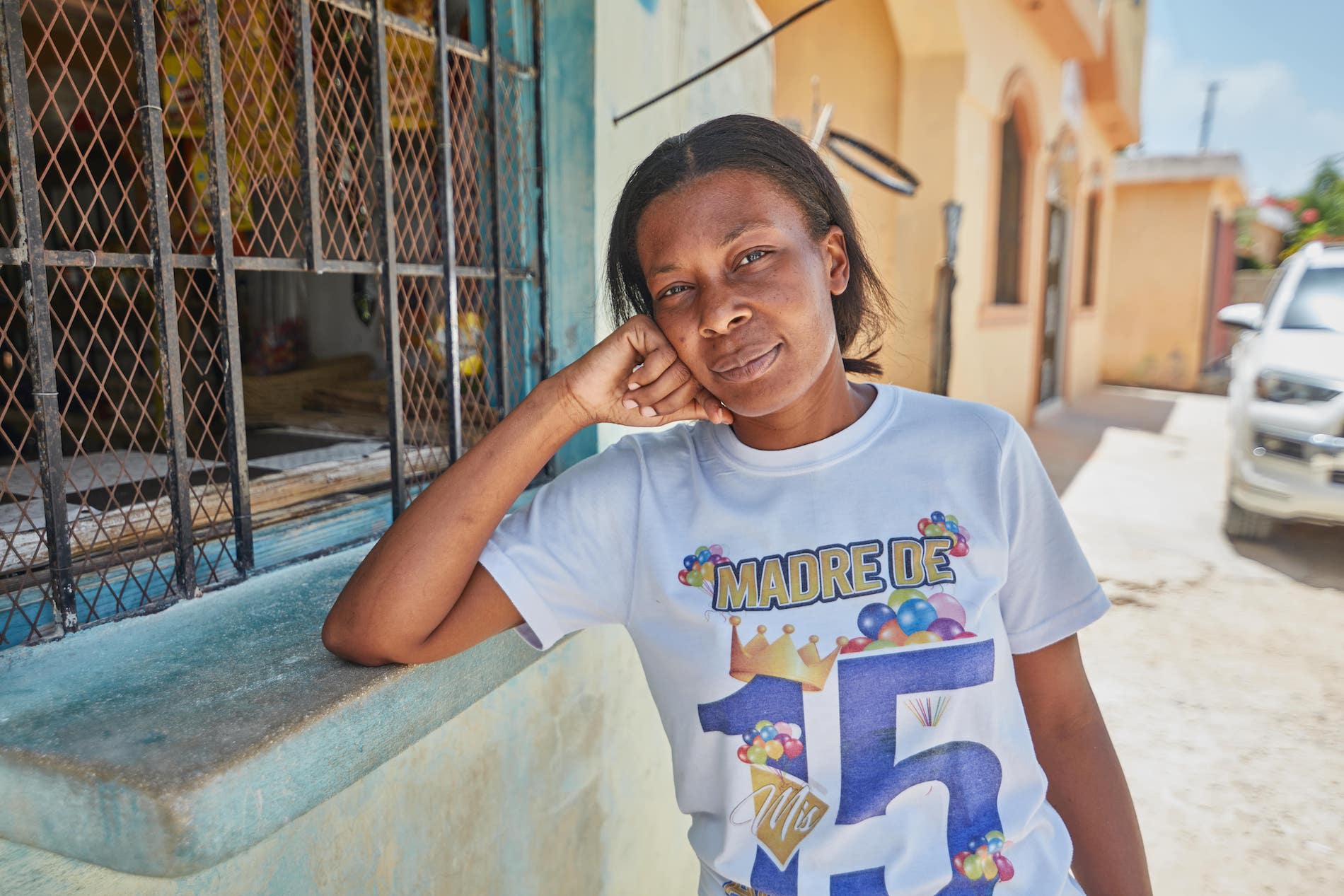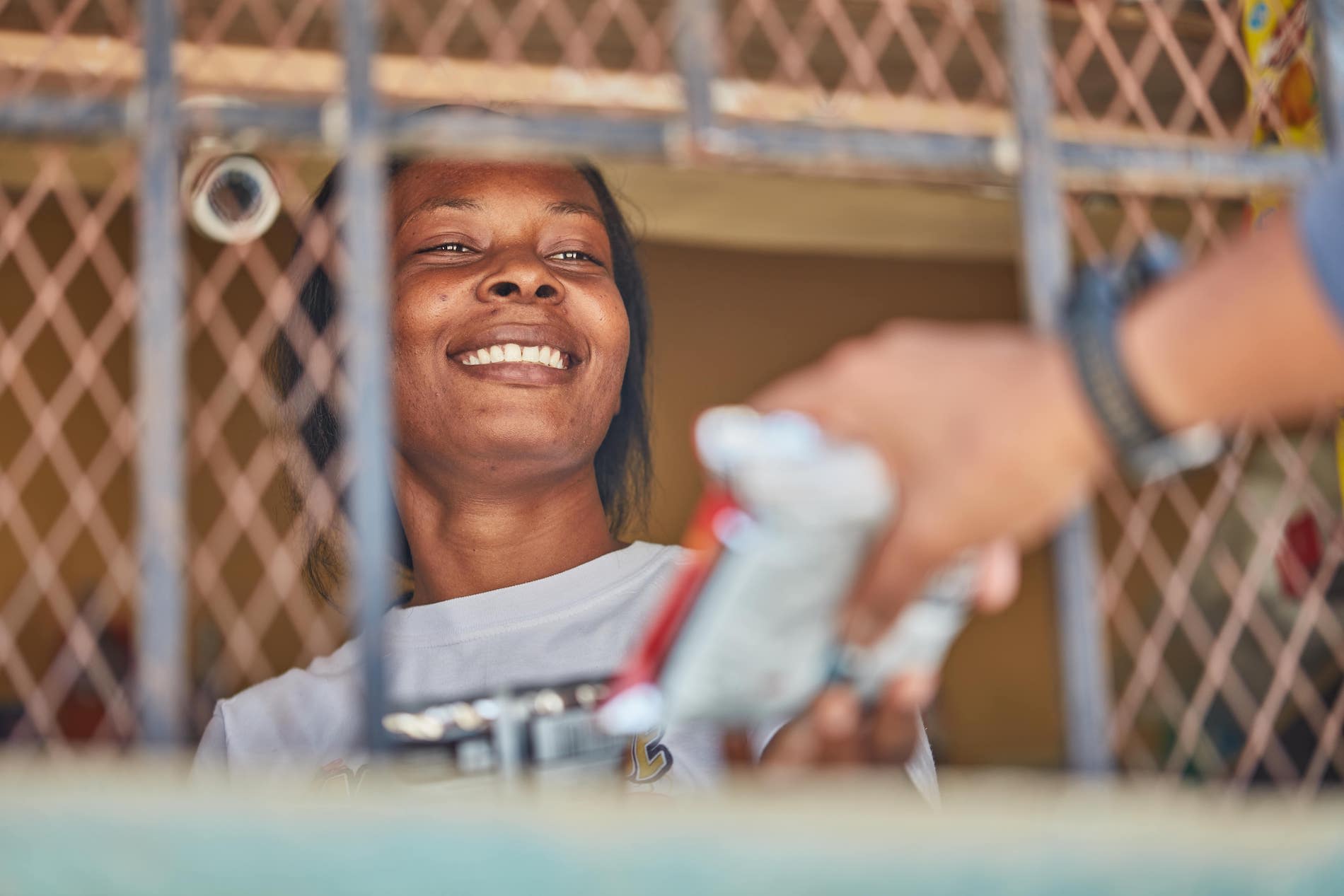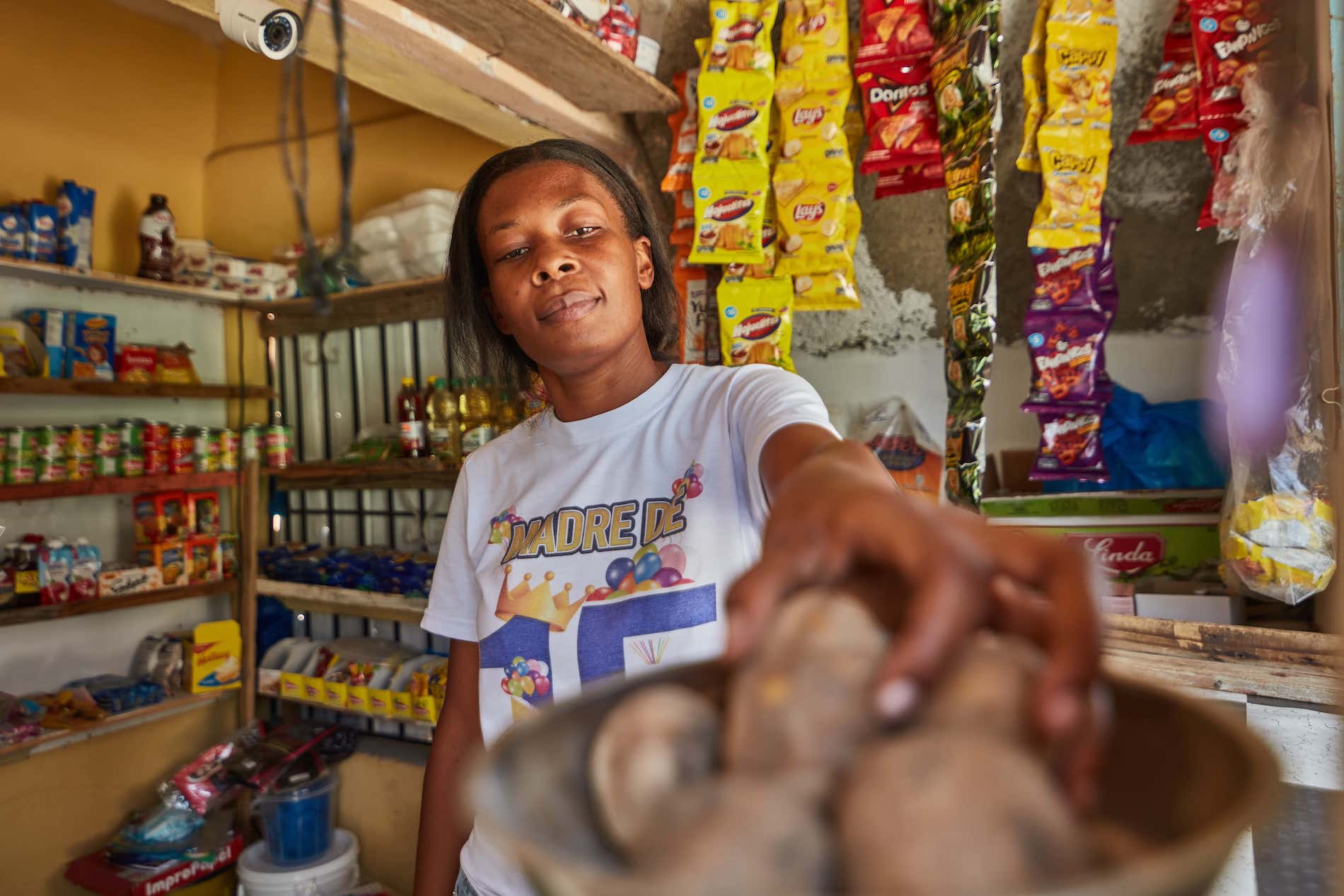They call her “The Mini Market Lady.”
For the last 15 years, Rosa has operated a small convenience store out of the bottom floor of her home in Villa Hermosa, a small town in the La Romana region of the Dominican Republic. Those who live in the neighborhood know that hers is the place to find what they need.
Like any good business owner, she keeps her inventory stocked with items she knows her customers will like: The shelves are lined with colorful packages of snacks, cooking supplies, and piles of root vegetables that she hands through the square window, accepting payment with a friendly greeting and a bright smile.
Rosa built her business with the help of a series of Kiva loans, beginning modestly with just one item: Cornbread.

“The first loan I took was for that, to buy flour, sugar and other stuff to start baking and selling corn bread,” she recalls.
“People began to know me and I started to get a lot of clients. They kept calling me, asking for my goods.”
Now, nine loans later, Rosa the Mini Market Lady still sells her homemade baked goods in her shop—in addition to building a reputation for carrying the best array of merchandise in town.
“I work hard to pay what I owe, so when I want to get more loans, I can.”
How microloans helped Rosa expand
Before she became an entrepreneur, Rosa worked in a tobacco factory. Tobacco is one of the Dominican Republic’s largest industries, and the country is now the number one producer of hand-rolled cigars in the world. However, the industry is notorious for its long hours and health hazards, exposing workers to high amounts of pesticides.
One day, Rosa decided to hand in her resignation and sought counsel from her godmother, who introduced her to a Kiva Lending Partner in the Dominican Republic, Esperanza International. In addition to facilitating microloans, Esperanza offers a suite of wraparound services to its clients, health services and business education, focusing on women in remote communities like Rosa’s.
Several loans, like Rosa’s, are offered as group loans. In group loans, all members of the group receive a portion of the money funded, and groups come together to learn from each other, provide encouragement, and hold each other accountable. This model often makes it possible to offer loans to people who might not otherwise qualify individually.
“I’m able to support my children, pay for school, take them to the doctor.”
After repaying the first loan that gave rise to those first batches of cornbread, Rosa took out several more, allowing her to diversify her revenue streams. In addition to growing her mini market, she opened another shop selling pacas—secondhand clothing. She continued the cycle of borrowing and repayment, improving her credit and increasing her income.
“I’m able to support my children, pay for school, take them to the doctor,” she says, explaining that her daughter has an eye defect that requires trips to the country’s capital, Santo Domingo.
“Almost every month I must travel there with her. She now needs to wear glasses.”
Although it has taken patience and perseverance to build her businesses bit by bit, taking the leap from factory worker to striking out on her own has served Rosa well. She now spends her days smiling and chatting through her shop window, her children playing together close by.

“Even though I spent a lot maintaining the market, I save all my profits in the bank,” she reports with pride. “I buy many things for myself, my kids, and my home.”
“Even though I spent a lot maintaining the market, I save all my profits in the bank. I buy many things for myself, my kids, and my home.”
Lend to someone in the Dominican Republic
With more loans comes more possibilities
Now that she’s established herself as the best place in town to buy delicious baked breads, canned goods, and affordable clothing, the Mini Market Lady has no plans to stop growing.

“I hope to expand the business. I want to build another room so I can sell pacas, I wish to set up a space for that,” she says, describing the ways she might continue to leverage loans for new possibilities.
“I hope to expand the business. I want to build another room so I can sell pacas, I wish to set up a space for that.”
“I work hard to pay what I owe, so when I want to get more loans, I can.”
This persistent entrepreneur also encourages other women in the Dominican Republic to seek out Kiva loans to help improve their independence and bring prosperity to themselves and their families.
But, she clarifies with her bright smile, “They have to work hard, just like me.”
There are many entrepreneurs like Rosa who are building better lives with the help of Kiva loans. You can support their efforts with as little as $25 by becoming a Kiva lender today.















